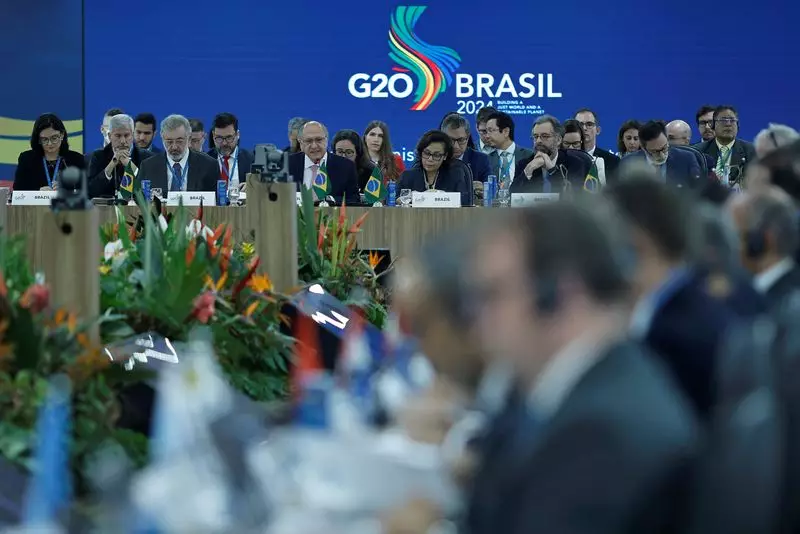In a significant meeting held in Brasilia, trade ministers from the G20 nations convened to address pressing issues surrounding international trade and investment. This assembly, marked by Brazil’s Vice President and Trade Minister Geraldo Alckmin, highlighted a collective commitment to fostering sustainable development and enhancing the role of women within global trade frameworks. The ministers put forth a proposal to their respective leaders at the upcoming G20 summit in Rio de Janeiro, aiming to embed these principles in the group’s overarching agenda.
Sustainable development emerged as a core theme during the discussions, reflecting a vital acknowledgment of the need to adapt trade practices that not only stimulate economic growth but also consider environmental implications. Brazil, poised to host the upcoming COP30 climate summit, intensified the call for trade policies that promote eco-friendly investments. The G20’s united front on these issues underscores a broader movement towards aligning economic initiatives with sustainable practices that prioritize the planet’s health alongside human prosperity.
During the meeting, the ministers underscored the urgent necessity for reforming the World Trade Organization (WTO). Brazilian President Luiz Inacio Lula da Silva emphasized the importance of creating a more agile and effective conflict resolution mechanism within the WTO, aiming for a system that can respond promptly to the challenges faced in the international trade landscape. The G20 ministers expressed their support for strengthening multilateral trading systems, asserting that a rules-based, equitable, and transparent environment is crucial for fair competition.
The commitment to reform has garnered attention amidst growing concerns about global economic disparities and trade disputes. By championing a modernized WTO, the G20 seeks to cultivate a robust framework that empowers nations, especially developing countries, to engage meaningfully in global trade. The move reflects a broader vision for global governance that seeks to accommodate the needs of all member states while ensuring adherence to universally accepted trade practices.
A landmark development in this assembly was the focus on the inclusion of women in international trade, a topic that has historically been overlooked in G20 discussions. This initiative marks the first time such an emphasis has been placed on promoting gender equality within trade, showcasing a progressive step forward in recognizing the valuable contributions of women in economic sectors. Alckmin highlighted President Lula’s insistence on making this principle a foundational aspect of the G20’s agenda, reinforcing Brazil’s commitment to championing gender inclusivity in global commerce.
This paradigm shift is expected to yield lasting impacts on economic policies, as women’s participation in trade is not only a matter of equity but also an unparalleled opportunity for driving economic growth. By addressing gender disparities in trade, the G20 is taking progressive strides towards creating an inclusive environment that enables women to thrive as active participants in the global economy.
While the G20 meeting predominantly focused on collaborative agenda-setting, underlying geopolitical tensions, particularly regarding the Russia-Ukraine conflict and the ongoing situation in Gaza, surfaced as points of contention among member states. However, the final consensus achieved on various proposals, especially those promoting women’s involvement in trade, signifies the G20’s ability to navigate complex political landscapes and prioritize collective goals.
The G20 trade ministers’ meeting in Brasilia has laid the groundwork for crucial advancements in international trade policies, emphasizing sustainability and inclusivity. As the group prepares for the upcoming summit in Rio, it remains clear that addressing these issues will be paramount for shaping a fair and equitable global trading system.


Leave a Reply